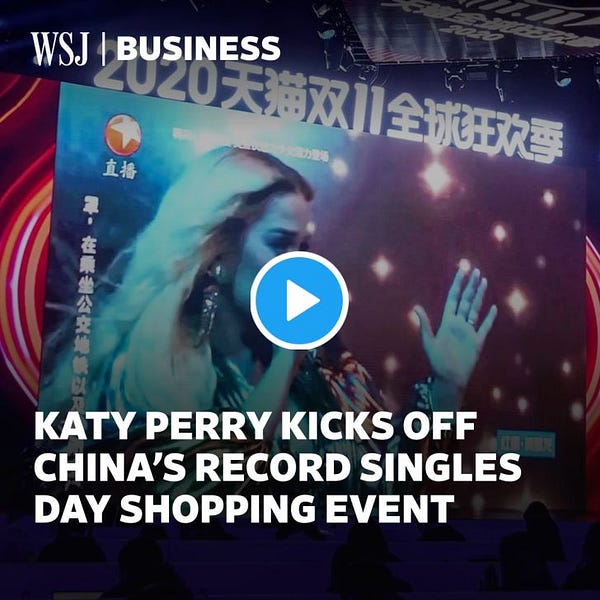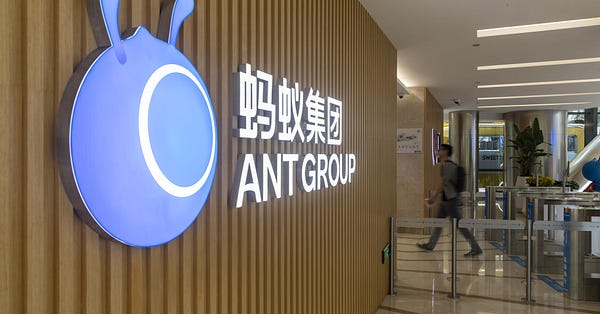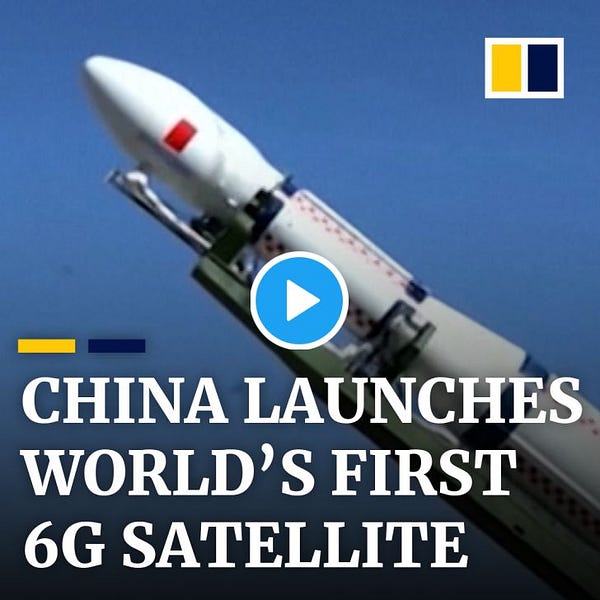This week, another recap of news from China that its own citizens can’t easily find out about. Forward this newsletter to friends who might like their own weekly update. And if you’re that friend, we’re happy to invite you to subscribe!
The politics of vaccination


The encouraging news about an impending COVID-19 vaccine is also raising more questions about whether Chinese developments can be safely shared with the world. Brazil suspended a clinical trial of Sinovac’s shots after a participant’s suicide. The trial resumed, but debates continue regarding the connections with China.
Singles Day paying a price


Alibaba reported US$74.1 billion in gross merchandise value sales for Singles Day, its annual promotion event which peaked at 583,000 orders per second, amounting to a 26 per cent increase over last year. And of the about 250,000 brands represented, some 31,000 were international ones, whose popularity grew due to travel restrictions.
The release of proposed new regulation on internet companies, in apparent response to Alibaba co-founder Jack Ma criticizing the state-dominated banking sector meant the company still saw its stock plunge. Beijing released the proposal on the eve of Singles Day, in what couldn’t help but seem like a message sounded to all capitalists in China.
Lawmakers taking a stand


After four pro-democracy lawmakers were ousted from Hong Kong’s legislature, 15 remaining ones announced they’ll resign en masse. Before their exit, one of them unfurled a banner that expressed feelings about leader Carrie Lam. China condemned the walkout, but Britain, the E.U. and the U.S. pointedly condemned the crackdown.
BBC News pays tribute to the disappearing newsstands of Hong Kong, which are fading away due to the growth of digital information, yet also stood as a symbol of press freedom that the national security law endangers. Hong Kong journalist Bao Choy is the latest to face charges that appear tied to China increasing limits on media freedom.
One number ahead of you
A test of what’s described as sixth-generation technology, with data transmission speeds that can be used for monitoring crop disasters and forest fires, supplied China with the goal of reaching 100 times the speed of existing networks. The 5G rollout remains controversial due to Huawei seeking spectrum around the world.
The last words, for now
Last month, South Korean boy band BTS suffered a backlash in China for commenting on a war from 70 years ago. Now it’s the K-pop girl group Blackpink whose members have been criticized for mishandling a baby panda in a scene from a reality TV show. China filed a formal complaint about the clip, and the video was withdrawn in response:


The China Letter will return next week. If you’re not subscribed yet, do it here:









